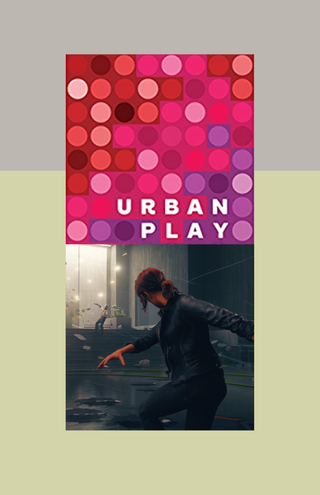Architecture—tangible and virtual—emotionally shapes the environments we occupy. In the real world, architecture that prioritizes its occupants’ wellbeing makes a lasting impact on its community. Similarly, architecture in video games plays a crucial role as a character and instigator of story. Both realms highlight the importance of intentional architectural design in the outcomes of people’s experiences in those spaces.
Stuart MacDonald (World Design Director, Control) and Ricardo Alvarez (Postdoctoral Researcher, MIT SENSEable City Lab) sat down with Killscreen founder Jamin Warren to discuss the impact of architectural design on gameplay and emotional resonance. They examined the resonances shared between their fields and reflected on what each realm can learn from the other.
In Urban Play, Fábio Duarte and Ricardo Álvarez argue that the merely functional aspects of technology may undermine its transformative power. Technology is powerful not when it becomes optimally functional but when it is still playful and open to experimentation. It is through play—in the sense of acting for one's own enjoyment rather than to achieve a goal—that we explore new territories, create new devices and languages, and transform ourselves. Only then can innovative spatial design create resonant spaces that go beyond functionalism to evoke an emotional response in those who use them.
Winner of over 80 awards, Control is a visually stunning third-person action adventure that will keep you on the edge of your seat. Blending open-ended environments with the signature world-building and storytelling of renowned developer, Remedy Entertainment, Control presents an expansive and intensely gratifying gameplay experience.
After purchase, you'll get access to a recording of the the video and a transcript available in your account page.
Architecture—tangible and virtual—emotionally shapes the environments we occupy. In the real world, architecture that prioritizes its occupants’ wellbeing makes a lasting impact on its community. Similarly, architecture in video games plays a crucial role as a character and instigator of story. Both realms highlight the importance of intentional architectural design in the outcomes of people’s experiences in those spaces.
Stuart MacDonald (World Design Director, Control) and Ricardo Alvarez (Postdoctoral Researcher, MIT SENSEable City Lab) sat down with Killscreen founder Jamin Warren to discuss the impact of architectural design on gameplay and emotional resonance. They examined the resonances shared between their fields and reflected on what each realm can learn from the other.
In Urban Play, Fábio Duarte and Ricardo Álvarez argue that the merely functional aspects of technology may undermine its transformative power. Technology is powerful not when it becomes optimally functional but when it is still playful and open to experimentation. It is through play—in the sense of acting for one's own enjoyment rather than to achieve a goal—that we explore new territories, create new devices and languages, and transform ourselves. Only then can innovative spatial design create resonant spaces that go beyond functionalism to evoke an emotional response in those who use them.
Winner of over 80 awards, Control is a visually stunning third-person action adventure that will keep you on the edge of your seat. Blending open-ended environments with the signature world-building and storytelling of renowned developer, Remedy Entertainment, Control presents an expansive and intensely gratifying gameplay experience.
After purchase, you'll get access to a recording of the the video and a transcript available in your account page.
Our Approach
Game-Making Practice
It's for everyone! We believe that game design and thinking is not limited to "the video game industry." It's a creative point of view that any discipline can use.
LEARN FROM Doing
Our workshops are focused on activities with a majority of time spent on making things.
this is only the start
You'll grow from here. We hope that this is a stepping stone for you to permanently work with the material of games.


